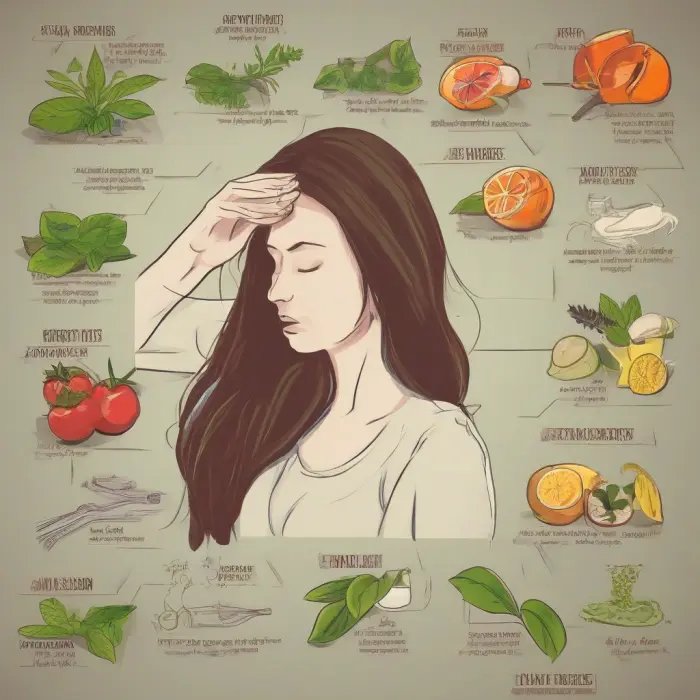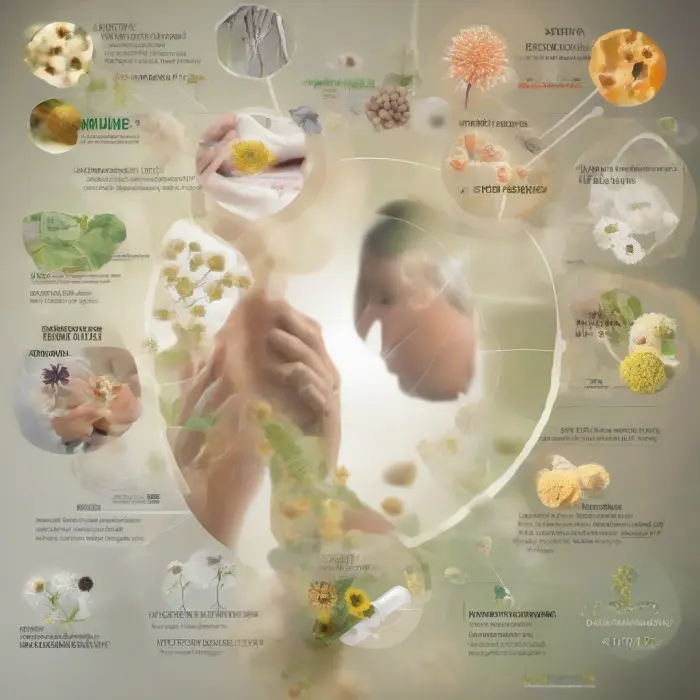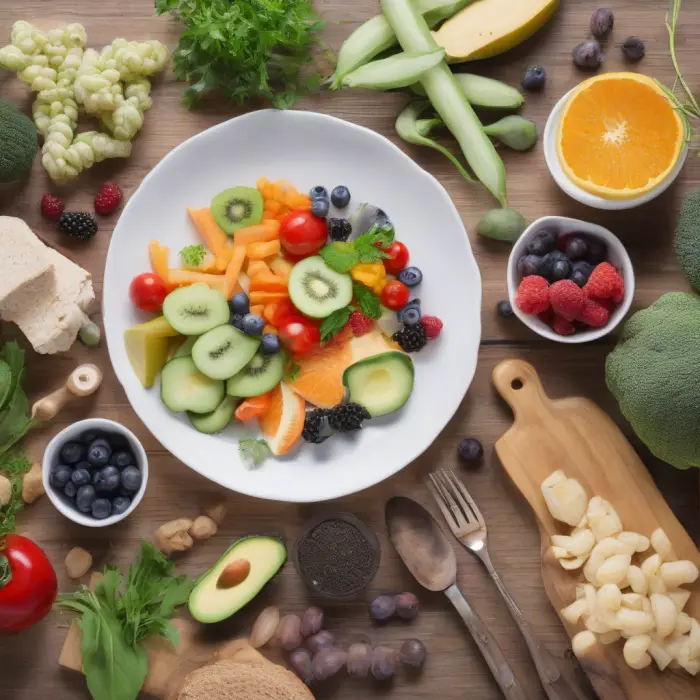The Connection Between Nutrition and Mental Health: A Holistic Approach
What we eat shapes how we feel. While mental health is influenced by many factors—genetics, environment, life events, sleep, movement, and relationships—nutrition is a powerful, modifiable pillar that supports the brain and nervous system. A holistic approach weaves food choices together with lifestyle practices to bolster emotional resilience, focus, and overall well-being.
Why Nutrition Matters for the Brain
The brain is metabolically hungry. It demands a steady supply of energy, building blocks, and signaling molecules derived from food. Nutrition influences mental health through several interconnected pathways:
- Energy stability: Balanced blood sugar supports steady mood and attention; erratic spikes and dips can fuel irritability, anxiety, and fatigue.
- Neurotransmitters: Amino acids (from protein), B vitamins, iron, zinc, and magnesium help produce and regulate neurotransmitters like serotonin, dopamine, and GABA.
- Structural support: Omega-3 fats (EPA/DHA) are integral to neuronal membranes and signal transmission, affecting plasticity and inflammation.
- Inflammation: Diets rich in refined sugars and ultra-processed foods can promote chronic inflammation, which is linked to depressive and anxious symptoms. Anti-inflammatory patterns may be protective.
- Gut–brain axis: The microbiome communicates with the brain via nerves, immune messengers, and microbial metabolites; fiber-rich, diverse diets foster a healthier gut environment.
- Hormonal balance: Nutrients affect stress hormones, thyroid function, and insulin signaling—all of which influence mood, cognition, and motivation.
The Gut–Brain Axis: Your “Second Brain†in Action
The intestinal tract houses trillions of microbes that help digest food, produce vitamins, and generate short-chain fatty acids (SCFAs) like butyrate. These SCFAs strengthen the intestinal barrier, modulate immune activity, and may reduce neuroinflammation. Gut bacteria also interact with the vagus nerve, the immune system, and tryptophan metabolism (a precursor to serotonin).
What helps the gut:
- Fiber diversity: Vegetables, fruits, legumes, whole grains, nuts, and seeds feed beneficial microbes.
- Fermented foods: Yogurt, kefir, kimchi, sauerkraut, miso, and tempeh can increase microbial diversity.
- Polyphenols: Colorful plant compounds in berries, olive oil, herbs, and cocoa nourish microbes and act as antioxidants.
- Minimizing ultra-processed foods: Emulsifiers, excess sugars, and certain additives can disrupt the microbiome in some individuals.
Blood Sugar Balance and Mood
Rapid blood glucose swings can mimic or worsen anxiety and fatigue. Stable energy supports more consistent mood and concentration.
- Pair carbs with protein, fat, and fiber: For example, add nut butter to fruit or chickpeas to a salad.
- Choose minimally processed carbohydrates: Whole grains, legumes, and intact starches digest more slowly.
- Front-load protein: A protein-rich breakfast (eggs, Greek yogurt, tofu scramble) can improve satiety and focus.
- Regular meal timing: Long gaps without food can contribute to dips in energy and mood for many people.
Key Nutrients for Mental Well-Being
A whole-food, varied diet typically provides the nutrients needed for mental health, but some are especially noteworthy:
Omega-3 Fatty Acids (EPA and DHA)
- Role: Anti-inflammatory, crucial for neuronal membranes, linked with mood and cognitive function.
- Sources: Fatty fish (salmon, sardines, mackerel, herring), trout, anchovies; algae-based DHA/EPA for plant-based diets; walnuts, chia, flax (ALA converts only modestly to EPA/DHA).
B Vitamins (B1, B2, B3, B6, Folate, B12)
- Role: Energy metabolism and neurotransmitter synthesis; low levels may be associated with low mood and cognitive issues.
- Sources: Leafy greens, legumes, eggs, dairy, meat, fish, fortified foods; B12 is critical for vegans (consider fortified foods or supplements).
Vitamin D
- Role: Immune modulation, brain development, and mood regulation; many people are insufficient.
- Sources: Sunlight exposure, fatty fish, fortified dairy/plant milks, eggs; testing may guide supplementation.
Magnesium
- Role: Nervous system regulation, muscle relaxation, sleep support.
- Sources: Nuts, seeds, legumes, whole grains, leafy greens, dark chocolate.
Zinc and Iron
- Role: Neurotransmitter synthesis and myelination; iron deficiency can contribute to fatigue, brain fog, and low mood.
- Sources: Red meat, shellfish, poultry, legumes, pumpkin seeds, fortified grains; pair plant iron with vitamin C to enhance absorption.
Iodine and Selenium
- Role: Thyroid hormone production and activation, influencing energy and mood.
- Sources: Iodized salt, seaweed; Brazil nuts (selenium), seafood, eggs.
Choline
- Role: Precursor to acetylcholine (memory, attention) and structural lipid metabolism.
- Sources: Eggs, liver, soy, legumes.
Amino Acids
- Tryptophan: Serotonin precursor (found in poultry, dairy, soy, seeds).
- Tyrosine: Dopamine and norepinephrine precursor (found in dairy, legumes, meat, fish).
- Glycine and GABA support: Collagen-rich foods, bone broth, and fermented foods may be supportive.
Antioxidants and Polyphenols
- Role: Reduce oxidative stress and support vascular health in the brain.
- Sources: Berries, cocoa, green tea, olive oil, colorful vegetables and fruits, spices (turmeric, cinnamon).
Fiber and Prebiotics
- Role: Feed beneficial microbes; generate SCFAs that support gut barrier and reduce inflammation.
- Sources: Onions, garlic, leeks, asparagus, bananas (slightly green), oats, legumes, chicory root.
Hydration and Electrolytes
- Role: Even mild dehydration can impair mood and cognition; minerals support nerve signaling.
- Strategy: Aim for pale yellow urine; include mineral-rich foods or balanced electrolyte solutions as needed.
Dietary Patterns with Evidence
Rather than focusing on single nutrients, patterns of eating matter most:
- Mediterranean-style diet: Emphasizes vegetables, fruits, legumes, whole grains, nuts, olive oil, fish, and fermented dairy. Clinical trials have found improvements in depressive symptoms when people adopt this pattern alongside standard care.
- MIND diet: A blend of Mediterranean and DASH, prioritizing leafy greens, berries, whole grains, beans, nuts, fish, and olive oil, while limiting butter, pastries, and fried/fast foods; linked to slower cognitive decline.
- Traditional diets: Diets that minimize ultra-processed foods and include fermented foods and diverse plant fibers may support mental well-being via the microbiome and inflammation pathways.
Special Considerations Across Life Stages
- Children and teens: Rapid brain development requires protein, omega-3s, iron, zinc, B12, and choline. Limit sugary drinks and ultra-processed snacks; build habits around family meals and colorful plates.
- Pregnancy and postpartum: Folate, choline, iodine, iron, omega-3s, and vitamin D are key. Adequate nutrition is linked to better outcomes for maternal mood and infant development. Consult a clinician for prenatal supplementation.
- Older adults: Appetite and absorption can decline; prioritize protein at each meal, B12, vitamin D, calcium, and omega-3s. Hydration and fiber support regularity and cognition.
- Plant-based diets: Ensure B12, iodine (iodized salt), omega-3s (algae-based DHA/EPA), iron, zinc, and choline. Use fortified foods or supplements as needed.
- Budget-friendly strategies: Choose beans, lentils, oats, frozen vegetables and fruits, canned fish, eggs, and seasonal produce; cook in batches and rely on herbs, spices, and pantry staples.
Holistic Daily Practices
A holistic approach integrates food with lifestyle habits that synergize with nutrition.
- Meal pattern: Aim for three balanced meals and optional snacks with protein, fiber, and healthy fats.
- Mindful eating: Slow down, notice hunger/fullness cues, and eat without screens when possible.
- Sleep: 7–9 hours supports appetite hormones and emotional regulation; keep consistent sleep/wake times.
- Movement: Regular aerobic and resistance exercise improves mood, sleep, and insulin sensitivity.
- Sunlight and nature: Morning light anchors circadian rhythm; time outdoors reduces stress.
- Stress management: Breathwork, meditation, yoga, hobbies, and social connection lower allostatic load and inflammation.
- Caffeine and alcohol: Moderate caffeine can aid alertness but may trigger anxiety or insomnia in some; alcohol can disrupt sleep and mood—consider reducing and avoid using it as a coping tool.
- Digital hygiene: Limit doomscrolling and nighttime blue light; protect focus and mood with boundaries.
A Simple Plate Template
Use this visual guide to build meals that support mental well-being:
- Half plate: Non-starchy vegetables (leafy greens, broccoli, peppers, tomatoes, mushrooms).
- Quarter plate: Protein (fish, poultry, tofu/tempeh, eggs, beans/lentils, Greek yogurt).
- Quarter plate: Whole-food carbohydrates (quinoa, brown rice, oats, whole-wheat pasta, potatoes, beans).
- Add: Healthy fats (olive oil, avocado, nuts/seeds) and fermented food (yogurt, kefir, sauerkraut) when possible.
Sample Day
- Breakfast: Greek yogurt with berries, chia, and walnuts; side of green tea.
- Lunch: Lentil and vegetable soup with a side salad dressed in olive oil and lemon; whole-grain bread.
- Snack: Apple with almond butter, or carrots with hummus.
- Dinner: Baked salmon (or tofu) with roasted sweet potatoes and broccoli; sauerkraut on the side.
- Evening: Chamomile tea; screen-light dimmed to support sleep.
Supplements: When and How to Consider Them
Food first, supplements as needed. Work with a qualified clinician for personalized advice, especially if you take medications or have medical conditions.
- Potentially helpful: Omega-3 (EPA/DHA), vitamin D (based on 25(OH)D levels), B12 (if low intake or absorption), iron (if deficient), magnesium (for sleep/muscle tension), probiotics or fermented foods.
- Testing targets to discuss with your clinician: Ferritin (iron stores), B12 and folate, 25(OH)D, thyroid panel, fasting glucose/A1c, and in some cases zinc or omega-3 index.
- Safety notes: Avoid high-dose iron unless deficient; omega-3s can increase bleeding risk at high doses in combination with anticoagulants; vitamin D can be toxic in excess—test and dose appropriately.
Alcohol, Sugar, and Ultra-Processed Foods
- Alcohol: May worsen sleep, anxiety, and mood. If you drink, set limits and observe how it affects you.
- Added sugars: Frequent highs/lows can destabilize mood and energy; choose whole-food sweets (fruit, dark chocolate) and pair with protein/fat.
- Ultra-processed foods: Often low in fiber and key nutrients, high in additives and refined oils; lean toward minimally processed choices most of the time.
Equity, Culture, and Personalization
There is no single “perfect†diet for mental health. Cultural traditions offer nutrient-dense patterns—Mediterranean, East Asian, West African, Latin American, South Asian, and Indigenous cuisines all provide rich frameworks. Personalize based on budget, access, preferences, allergies/intolerances, and values. Small, sustainable changes matter more than rigid rules.
When to Seek Professional Help
- Persistent or worsening depression, anxiety, irritability, or sleep disturbances.
- Significant weight loss/gain, appetite changes, or digestive issues beyond mild adjustments.
- Thoughts of self-harm or suicide—seek immediate help from a professional or emergency services.
- History of eating disorders—work with clinicians experienced in nutritionally informed, weight-inclusive care.
Nutrition complements, not replaces, therapy and medication. Integrated care often yields the best outcomes.
Getting Started: A 2-Week Gentle Reset
- Week 1—Foundations:
- Add one extra serving of vegetables daily.
- Include protein at breakfast.
- Swap one ultra-processed snack for nuts, fruit, or yogurt.
- Drink a full glass of water upon waking and midafternoon.
- Week 2—Gut and Omega-3 Focus:
- Add a fermented food daily (or consider a probiotic if advised).
- Eat fatty fish twice this week (or use algae-based omega-3).
- Try one new legume or whole grain recipe.
- Set a consistent sleep window and morning light routine.
Conclusion
The connection between nutrition and mental health is dynamic and bidirectional. Food influences brain chemistry, inflammation, gut health, and energy stability, while our mood and stress levels shape our cravings, digestion, and appetite. A holistic approach—prioritizing nutrient-dense foods, stable blood sugar, microbiome support, and lifestyle pillars like sleep, movement, and stress care—can strengthen emotional resilience. Start small, personalize your plan, and seek collaborative support when needed.










